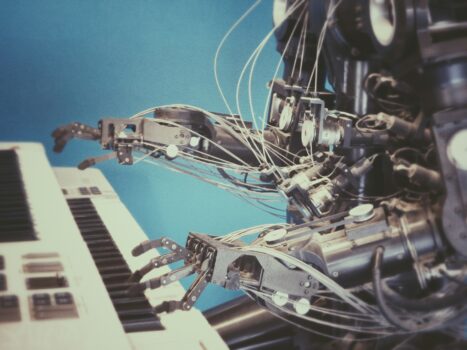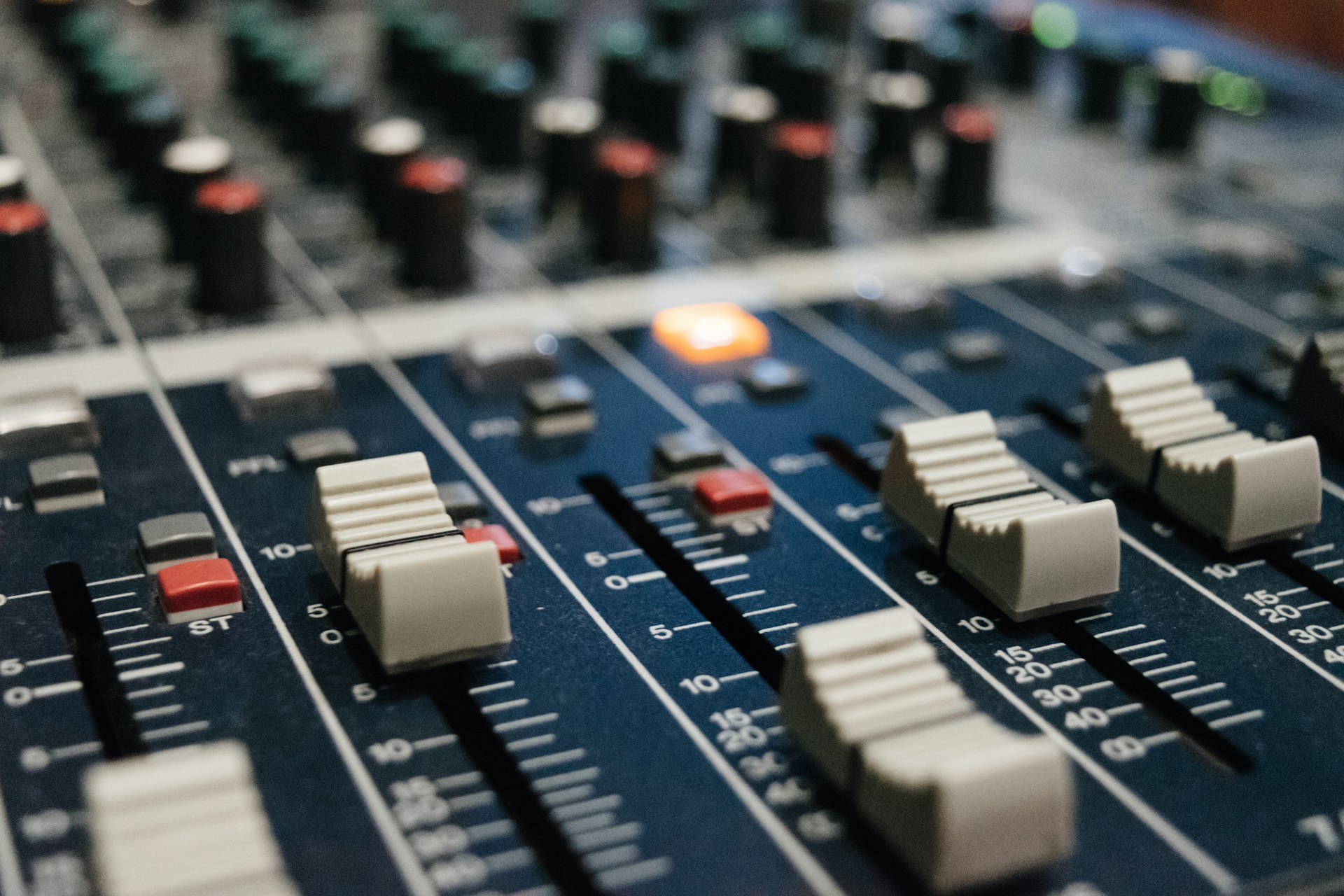Artificial Intelligence (AI) is revolutionizing the music production landscape, offering novel tools and methods that push the boundaries of creativity and efficiency. At the heart of this transformation is the capacity of AI to compose, arrange, and produce soundtracks that seamlessly blend with a plethora of digital content. This technological advancement not only democratizes music production, making it accessible to creators with varying levels of musical expertise but also introduces a new layer of complexity and ethical considerations.
The nuances of using AI in music production are multifaceted, involving questions about originality, copyright, and the role of human emotion in art. Yet, the potential for innovation and the ability to create unique, emotionally resonant soundscapes for everything from films to video games positions AI as a pivotal player in the future of digital music.
The Evolution of AI in Music Production
The genesis of AI in music production can be traced back to experiments in algorithmic compositions and computer-generated music. These early endeavors laid the foundation for today’s sophisticated AI systems that can analyze vast datasets of music to recognize patterns, styles, and structures.
This evolution from simple MIDI compositions to complex, emotionally nuanced soundtracks reflects substantial advancements in machine learning and artificial intelligence technologies. Additionally, the progression of music AI has facilitated the emergence of platforms and tools designed to cater to the needs of modern content creators. These platforms enable users to input specific criteria—such as mood, tempo, and genre—and generate original compositions that meet their content’s specific emotional and stylistic needs.
This has significantly reduced the barriers to creating high-quality, compelling soundtracks for digital content.
Copyright and Originality Concerns
The integration of AI in music production raises pertinent questions about copyright and originality. As AI-generated music often draws from a vast pool of existing compositions to create something new, it blurs the lines between inspiration and infringement. This has led to debates within the legal and artistic communities about the nature of creativity and the definition of original work in the age of AI.
The potential for AI to produce music that resembles the style of specific artists or genres has sparked discussions about the authenticity of AI-generated music. The challenge lies in distinguishing between AI’s ability to ‘create’ music and its capacity to ‘replicate’ existing artistic expressions. This distinction is crucial for understanding the implications of AI in the future of music production and copyright law.
Emotional Depth and Human Connection
One of the most intriguing aspects of AI-generated music is its ability to evoke emotional responses. Critics argue that while AI can produce technically proficient music, it lacks the intrinsic emotional depth that human composers infuse into their creations. This debate centers around the importance of human experience, intention, and emotion in creating music that truly resonates with listeners.
Conversely, proponents of AI in music production highlight instances where AI-composed music has successfully elicited strong emotional reactions from audiences. They point to the potential for AI to learn and mimic complex emotional cues in music, suggesting that AI-generated compositions can indeed possess emotional depth, albeit derived from human emotions rather than originating from a human source.
AI as a Collaborative Tool
AI is increasingly viewed not as a replacement for human creativity but as a collaborative tool that enhances the music production process. This perspective advocates for leveraging AI’s analytic and generative capabilities in harmony with human artistic intuition and creativity. For instance, artists and producers might use AI to suggest chord progressions, generate melody lines, or inspire new rhythms—effectively using AI as a creative partner in the composition process.
The emergence of AI-assisted music production software exemplifies this collaborative approach, allowing musicians to interact with AI in real time, modifying and refining AI-generated ideas to craft original compositions. This symbiotic relationship between AI and human artists heralds a new era of music production wherein technology amplifies creative potential rather than supplanting human input.
Ethical Implications and Future Directions
The ethical implications of utilizing AI in music production extend beyond copyright issues to encompass concerns about job displacement and the devaluation of human skill and creativity. There’s a growing discourse on the need for ethical frameworks that guide the use and development of AI in creative industries, ensuring that these technologies augment rather than replace human skills.
As AI continues to advance and evolve, its impact on music production will likely become more pronounced. The future of music may see AI assume a greater role in composition, arrangement, and even performance. This raises questions about the changing landscape of musical expression and the evolving relationship between humans and technology.

In conclusion, the integration of Artificial Intelligence in music production is a paradigm shift that redefines the boundaries of musical creativity and expression. AI is not just a tool for creating soundtracks; it is a catalyst for artistic innovation, offering new possibilities for composers, producers, and content creators alike. While challenges and ethical considerations remain, the potential for AI to complement and enhance human creativity in music is undeniably profound.
As we move forward into this new era of digital music production, it is crucial to foster a synergy between AI capabilities and human artistic intuition. By doing so, we can ensure that the music of the future continues to resonate with emotional depth and authenticity, bridging the gap between technology and the timeless human experience of art.

